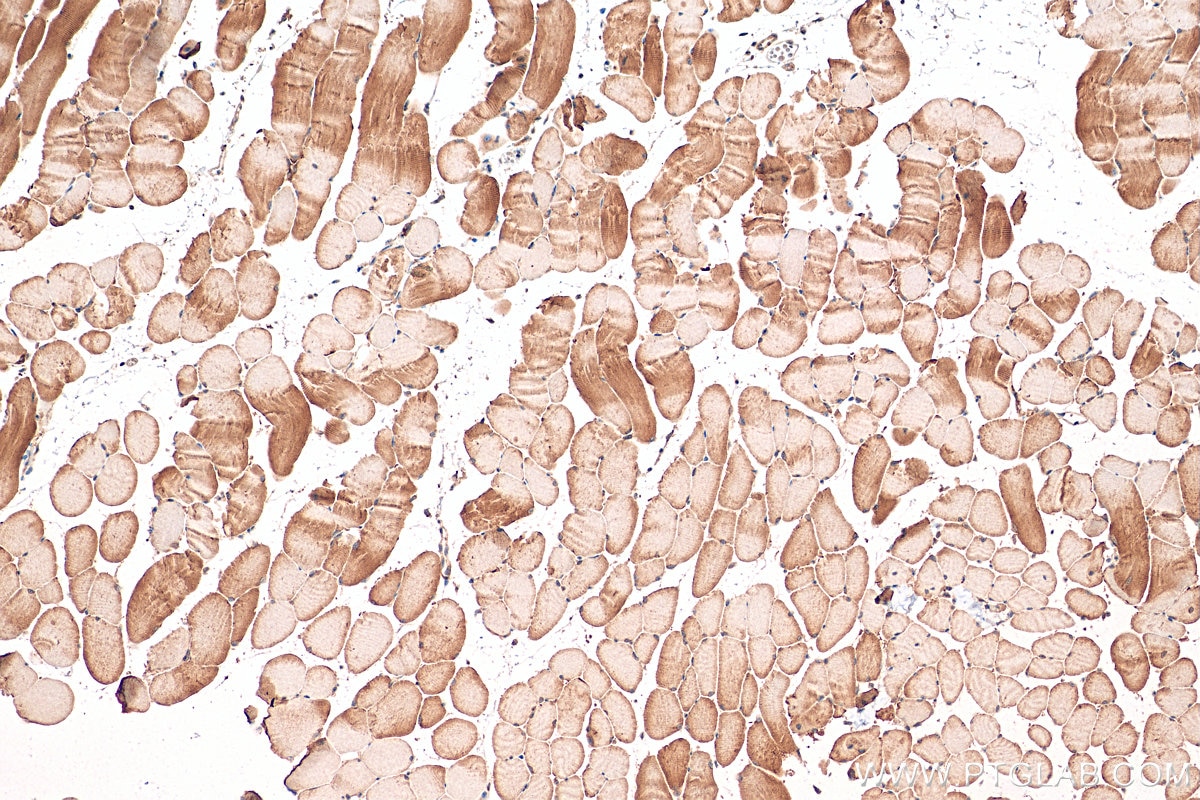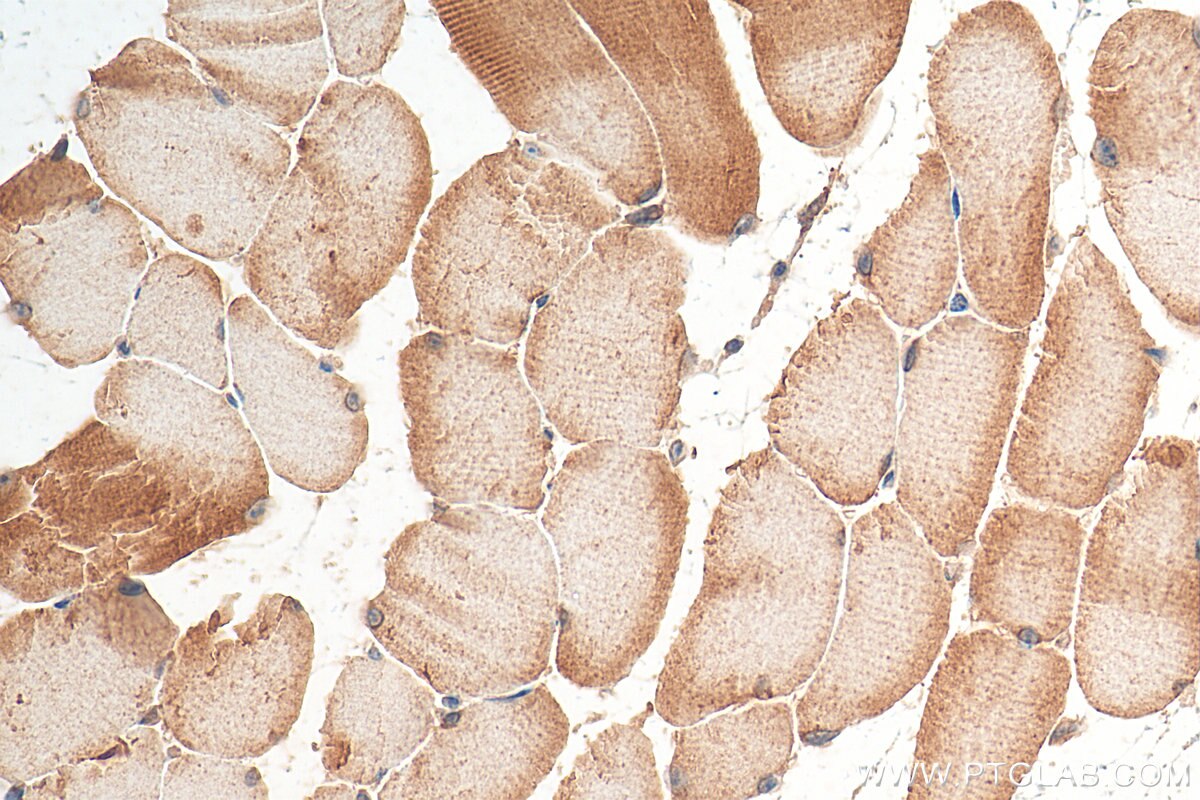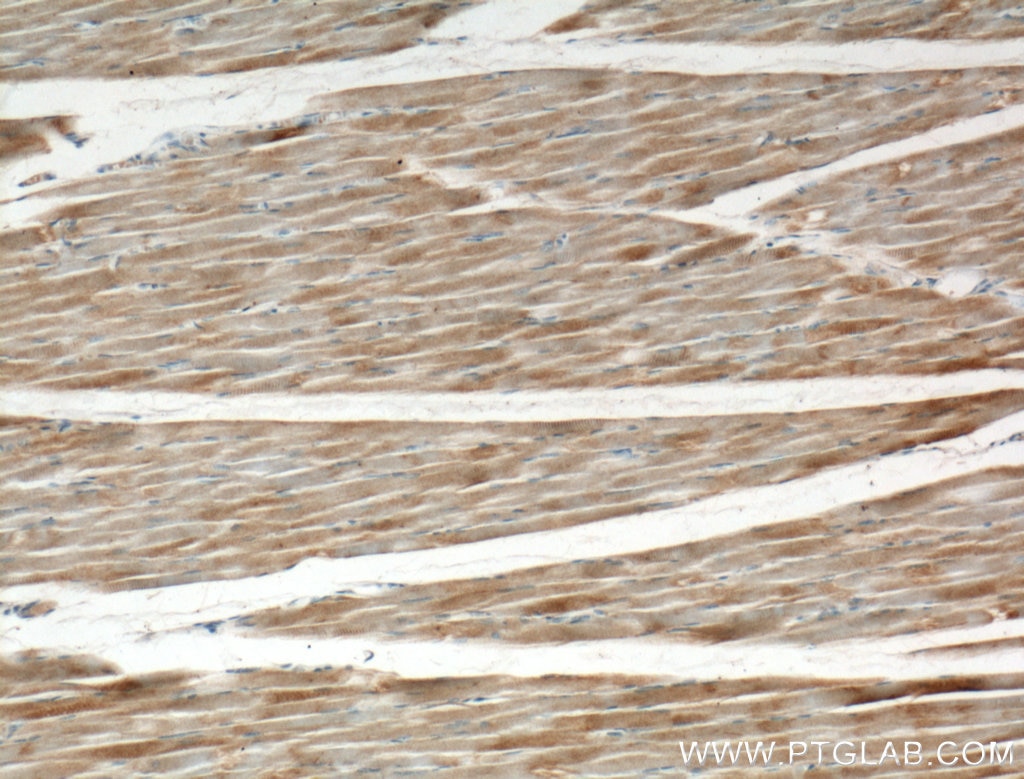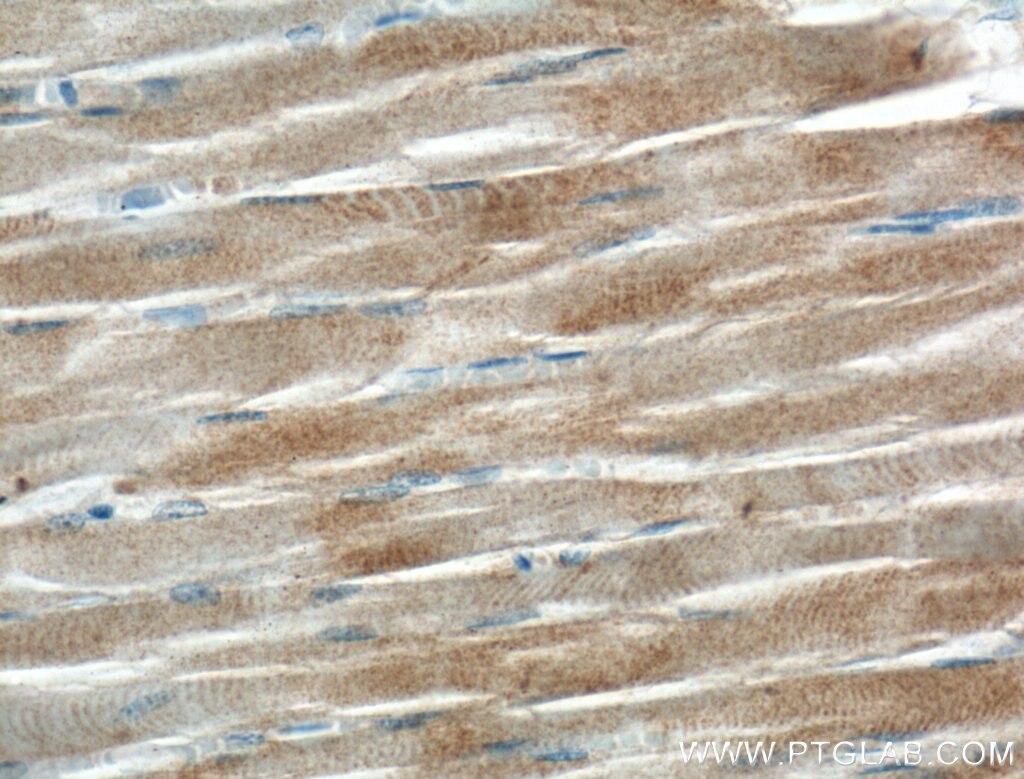KBTBD5 Polyklonaler Antikörper
KBTBD5 Polyklonal Antikörper für WB, IHC, ELISA
Wirt / Isotyp
Kaninchen / IgG
Getestete Reaktivität
human, Maus
Anwendung
WB, IHC, ELISA
Konjugation
Unkonjugiert
Kat-Nr. : 21836-1-AP
Synonyme
Geprüfte Anwendungen
| Erfolgreiche Detektion in WB | Maus-Skelettmuskelgewebe |
| Erfolgreiche Detektion in IHC | Maus-Skelettmuskelgewebe, humanes Skelettmuskelgewebe Hinweis: Antigendemaskierung mit TE-Puffer pH 9,0 empfohlen. (*) Wahlweise kann die Antigendemaskierung auch mit Citratpuffer pH 6,0 erfolgen. |
Empfohlene Verdünnung
| Anwendung | Verdünnung |
|---|---|
| Western Blot (WB) | WB : 1:500-1:1000 |
| Immunhistochemie (IHC) | IHC : 1:50-1:500 |
| It is recommended that this reagent should be titrated in each testing system to obtain optimal results. | |
| Sample-dependent, check data in validation data gallery | |
Produktinformation
21836-1-AP bindet in WB, IHC, ELISA KBTBD5 und zeigt Reaktivität mit human, Maus
| Getestete Reaktivität | human, Maus |
| Wirt / Isotyp | Kaninchen / IgG |
| Klonalität | Polyklonal |
| Typ | Antikörper |
| Immunogen | KBTBD5 fusion protein Ag16430 |
| Vollständiger Name | kelch repeat and BTB (POZ) domain containing 5 |
| Berechnetes Molekulargewicht | 621 aa, 69 kDa |
| Beobachtetes Molekulargewicht | 69 kDa |
| GenBank-Zugangsnummer | BC110491 |
| Gene symbol | KBTBD5 |
| Gene ID (NCBI) | 131377 |
| Konjugation | Unkonjugiert |
| Form | Liquid |
| Reinigungsmethode | Antigen-Affinitätsreinigung |
| Lagerungspuffer | PBS with 0.02% sodium azide and 50% glycerol |
| Lagerungsbedingungen | Bei -20°C lagern. Nach dem Versand ein Jahr lang stabil Aliquotieren ist bei -20oC Lagerung nicht notwendig. 20ul Größen enthalten 0,1% BSA. |
Hintergrundinformationen
KBTBD5, also known as KLHL40 and SRYP, contains a BACK domain, a BTB/POZ domain and 5 Kelch repeats. It is expressed predominantly in skeletal muscle. The KLHL40 gene mutation is responsible for a severe and potentially fatal neuromyopathy (PMID: 38397198).
Protokolle
| PRODUKTSPEZIFISCHE PROTOKOLLE | |
|---|---|
| WB protocol for KBTBD5 antibody 21836-1-AP | Protokoll herunterladen |
| IHC protocol for KBTBD5 antibody 21836-1-AP | Protokoll herunterladenl |
| STANDARD-PROTOKOLLE | |
|---|---|
| Klicken Sie hier, um unsere Standardprotokolle anzuzeigen |






